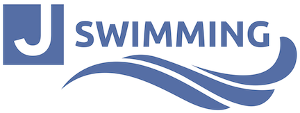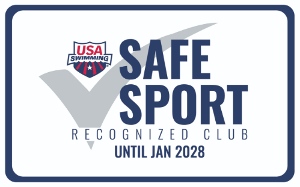JCC Swimming: Parent Education: Swim Meet Basics for Parents
1. Be on time. On time means 15 minutes before warmup begins.
2. Know the seating arrangements. Bring folding chairs to most outdoor pools. Bring drinks and snacks as appropriate. Sit with your child if that’s the team “thing.” Sit in the stands if that’s the way the team does it. Let the swimmers be with the swimmers. They don’t want to be with you in most cases. They want to be with their friends.
3. Encourage your child to get immediately to the coach for warmup. (See following article about warmup.)
4. Be a parent. Help them keep track of heats, events, etc. But remember that the main idea is to teach them to handle the environment of a swim meet themselves. This helps them “grow up.” It’s never too early....
5. Cheer for other people’s children on the team. Don’t embarrass your own by standing behind their blocks screaming. Let other parents scream for your child.
6. Let the coach coach. Unless you’re the coach. Then let someone else coach your child. So you can parent.
7. Sometimes a child will “miss an event”. This happens, it’s a learning experience. Don’t freak out. Don’t handhold them to the next event. Expect responsibility. If they can’t handle it, maybe they are too young to be there. Let them rely on teammates for help.
8. Sometimes a swimmer will false start and DQ a relay. Similarly, it’s a learning experience. Don’t freak out. The appropriate response by the swimmer to their teammates? “Sorry guys.” Everyone does it. Everyone needs to forgive. See, “Everyone Does It.” Reread that. Twice.
9. Sometimes a swimmer DQ’s for swimming an event incorrectly. Do not address the official. Ask the coach what they did wrong. Make sure the swimmer understands how to do it correctly. End of story. It IS NOT a big deal. Learn from it.
10. The child should have a goal for every swim. Sometimes a time, sometimes a technique. Ask what their goal is. Don’t help set it. That’s for the coach and swimmer.
11. The coach will likely speak to your child before and after the event. The “before” is to remind them of their goals and needs, and the “after” is to review the successes and weak spots of the swim. Great feedback is great coaching.
12. Make sure they drink in hot weather. Drink in all weather. Water, Gatorade, etc. NO SUGAR. NO CANDY. NO SUGAR, NO CANDY.
13. If you have questions, ask the Coach. Try to do it when the Coach is not doing 12 other things. Get real answers. Asking another parent may not get you the right answer.
14. When the meet is over, the meet is over. Forget it on the way home. Help the swimmer remember the lessons for the next time, but don’t dwell on the meet. Meet over....move on...next!
15. Most coaches will say “it’s not about winning, it’s about improvement.” Know what is being improved, and measure it and help your child focus on the process and not “just” the result. What does it take to go faster?
16. Keep it light. Have a sense of humor. An age group swim meet, taken at face value, is a pretty silly thing.....don’t overplay the “importance” of it ...it’s just an opportunity to test what you’ve been learning in practice. We repeat experiences that are enjoyable and avoid experiences that are not.
There are thousands of other ideas to add to this list. This is “just the basics”. Add to your own list.
And now, to the concept of WARMUP.
What is Warmup?
Warmup is what happens before a competition. Its purpose is several:
PHYSICAL:
1. Literally warm and lubricate the muscles for “action”.
2. Increase the heart rate in preparation for race action.
3. Getting in touch with your feel for the water and ability to swim the strokes correctly.
And MENTAL:
1. Get into focus. We’re at a swim meet to compete.
2. Get rid of distractions.
3. Focus on process and good technical swimming.
4. Prepare to Race.
Most warmups at most meets are crowded and appear chaotic.
Typically the coach will put all swimmers in one or two lanes, together.
The swimmers will do an easy swim. (“easy 500 free”)
Then some gentle kicking. (“10 x 25 free kick on 30 seconds”)
Then some drills....(“200 IM Drill”)
Then a “start your heart” set...(“8 x 50 free, descend 1-4, 5-8”)
Then some pace work relating to the specific event....
And a little more easy swimming.
Warmups can vary from Senior Swimmers who take an hour or more, to eight and unders, who can warmup in 20 minutes in some cases. In every case, it’s important to be ON TIME. Typically an hour before the meet. This allows time for the physical and the mental work to be done. The coach will commonly hold a short meeting to make sure all swimmers are accounted for, organized, know their events, and get last minute reminders.
Being LATE to warmup means your child will be inadequately prepared for their competition. Not a good thing. You ask them and the coach asks them, to work hard to learn in practice every day. Then the day of the meet, you do things incorrectly. What does that teach the child?
Be On Time, Do Things Correctly. Have a Great Meet!
By John Leonard, American Swimming Coaches Association
JCC Swimming: Parent Education: Pre- and Post- Race Conversations with Swimmers
If you’ve been to swim meets, you will have noticed that both before a race and immediately after a race, the coach speaks with your child. This is an important part of the race experience.
Before the race, the purpose is to remind the child of the singular thing that the coach wants the child to concentrate on in that race.
Or, in the words of famous Coach Confucius, “He who chases two rabbits, catches neither.” The purpose of the coach’s communication with your child is to make sure they are focused only on the item that the coach has chosen for that race. (This is based on what we’ve been doing in practice.) The reason we practice, of course, is to prepare to race.
Post Race, the coach wants to meet IMMEDIATELY with the athlete once they get out of the water to discuss with the athlete if they achieved that singular goal. Did they do what they set out to do? If so, “great, good job!” If not, why not? Or if the athlete can’t remember what they were supposed to do, that’s not a good and back to the drawing board in learning how to concentrate!
Both communications are critically important in the development of the athlete.
If a parent wants to know what the child is supposed to be concentrating on in any particular race, ASK THE COACH! We’ll be happy to tell you. You might check afterwards and see if your child also remembered, post race, what we said about it. Then you can reinforce the need to focus and learn.
By John Leonard, American Swimming Coaches Association
JCC Swimming: Parent Education: The Day After
Workout on the day after a swim meet is critically important to attend.
Why is it so important?
It’s an opportunity for the coach to recognize the good performers in front of all the swimmers.
It’s an opportunity to review the team’s progress toward seasonal goals.
It’s an opportunity to immediately address weaknesses observed at the meet with individuals as well as the team and to respond with drills, teaching, or appropriate training.
It’s necessary in order to stay on the training plan. Depending on the time in the season, resting from a practice is counterproductive to swimming fast later in the season.
It’s an opportunity to directly and deliberately face being tired and to perform regardless – an awesome life lesson.
Unfortunately, an occasional parent will make a coaching decision that their child can take the day off to rest. We need the support of parents to get their children to practice on the day after or risk their child losing the above benefits.





